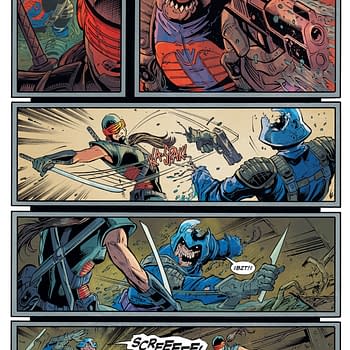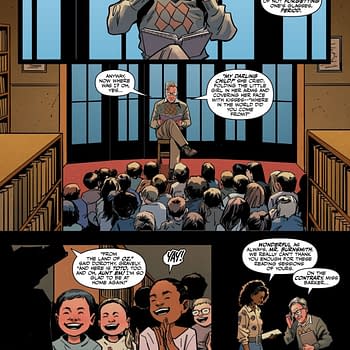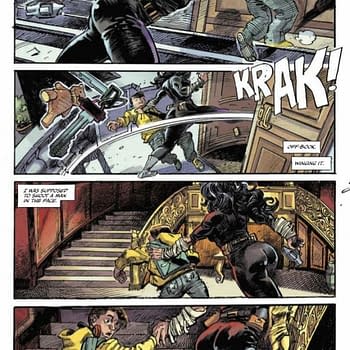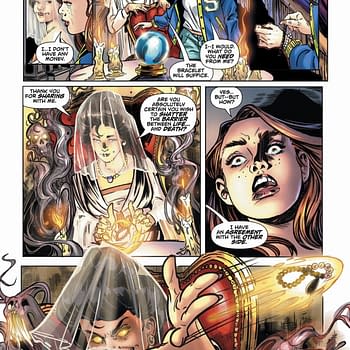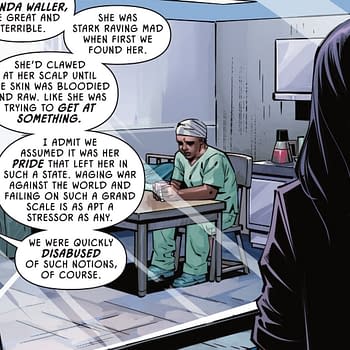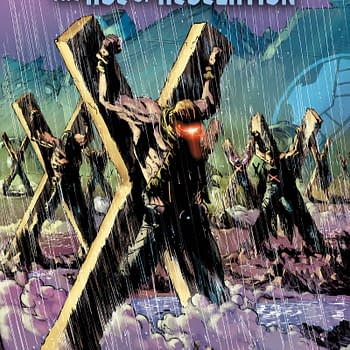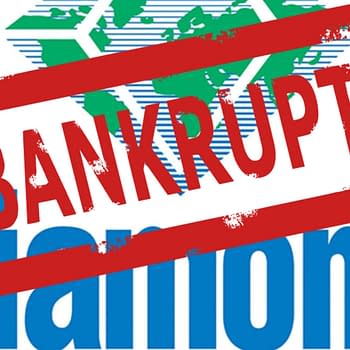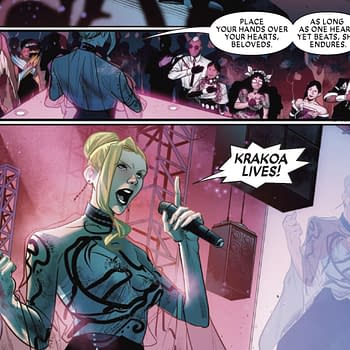Posted in: Comics, Marvel Comics | Tagged: marvel, new years, new years resolutions
Five New Years Resolutions We Wish Marvel Would Make for 2020
As we head into the new year, everyone is making New Years resolutions for themselves. But our own personal New Years resolutions aren't going to get the clicks, so we decided to make some for Marvel Comics instead. All of these resolutions seem highly unlikely considering Marvel's short-sighted, marketing-driven publishing strategies of the past decade, but nevertheless, here are some things we thing would vastly improve the industry if the industry leader would consider them.
Give Books a Chance to Succeed
Marvel has had a nasty habit in recent years of canceling comics before they have a chance to find an audience. Making it to twelve issues is a major milestone for new Marvel Comics these days, and making it past that is a rarity. On the one hand, it's nice that Marvel is interested in trying new things by launching titles with characters that don't have a built-in following to support the book, but how is that ever going to work if those books are canceled before the series has any chance to build buzz? With modern decompression techniques, twelve issues is essentially two complete stories. A book is just getting started by that point. Maybe Marvel needs to put more thought into what new comics they launch, but if they're going to launch a new book, they should commit to at least two full years of stories so that readers can see what the creative team can do. Of course, something that would help new comics succeed is covered in our next suggested resolution…
Publish Less Comics
Marvel shipped 84 single issue comics in November, which works out to more than 20 comics per week. A large portion of those comics are spinoffs or support books for major franchises like Spider-Man, The Avengers, and The X-Men. Combined with a four or five dollar price tag per book, it's no surprise that readers are reluctant to commit to trying something new, especially when they've been burned so many times before by getting into a new series only to see it canceled after one or two storylines. That's fifty bucks invested in something that is ultimately cast aside for the next new thing. We understand that Marvel is trying to squeeze as much money out of their existing readers as possible because the overall readership of any single comic has dwindled over the past decade, but this strategy does nothing to reverse that trend and has diminishing returns. It also leads to the dilution of concepts that do find success. For example, Jonathan Hickman's X-Men relaunch, for whatever flaws it may have, had people talking every week because it was focused on a single story and a single vision. Now, with six and soon-to-be more titles shipping monthly, many of them twice a month, that vision is a lot less focused, and it's more difficult for new readers to figure out what to read if they heard about "those new X-Men comics." The over-saturation of the market has always been a short-term strategy and a refusal to implement a long-term strategy has only forced Marvel to continuously double down on it. When will it reach a breaking point?
For God's Sake, Give the Super-Mega-Crossover Events a Rest
We all know the story by now. Whatever big new Marvel event coming up will rock the Marvel Universe to its foundations and nothing will ever be the same again. The problem is, the Marvel Universe is getting rocked at a rate of roughly once every three months by these things, so all of that hyperbole about the importance and consequences rings hollow. Why should readers care about whatever is going to happen in Empyre when we know it's going to be yesterday's news before the event even wraps up because Marvel will already be promoting the next Earth-shattering event? This behavior teaches readers to ignore Marvel's hyperbole and to distrust whatever Marvel marketing says. How many times can you fool comic readers into buying an overpriced event book and all of its tie-ins before they just start skipping them? Well, a lot of times, apparently, but eventually people have got to get fed up with it. More importantly, the constant universe-shaking prevents any single ongoing title from telling a long-term story because it's constantly interrupted with the big status quo change from the quarterly super-mega-crossover event. This is yet another strategy that may boost sales in the short term, but seems unsustainable in the long term.
Please Stop Relaunching Books Every Time a New Creative Team Takes Over
The whole point of the Marvel Universe is that it has been telling a continuous story for decades. The richness of these decades of backstory is what makes superhero comics unique in that someone can come in at issue #657, get into the story, and then go back and collect back issues to read about a character's history. When comics rarely run more than 12 issues without a relaunch or cancellation, it's incredibly confusing to figure out how to delve into Marvel's history. Sure, number one issues always sell more copies, for a number of factors, not all of which have to do with people actually wanting to read them. Stores order more of them because they don't have the past issues to estimate sales, and also because they frequently feature dozens of variants that can fetch a high price on eBay, offsetting the cost of unsold regular copies. But how is this doing anything to build readership? Within a few issues, sales always drop drastically as retailers figure out how many copies of a book they can actually sell to people who will read them. Sure, those number one sales result in Marvel making more money, but they're not actually getting people to read those books. Based on the sales attrition, we have to surmise that either twice the usual readership of a comic tried out the first issue and hated it so much they decided not to buy issue #2 and #3, or that no new readers bought the new issues in the first place, only speculators and retailers looking to capitalize on a variant cover ponzi scheme. All of this comes at the cost of making Marvel's continuity impenetrable for new readers because there's no easy way to figure out how to read these things in chronological order without a reading guide or heavy internet research. The fact is, comics switched creative teams or directions for decades without needing to relaunch the title, and the industry survived and even thrived. Cut this s**t out. It's not healthy for the industry in the long term.
Give Chris Claremont (and Other Older Creators) More Regular Work
You've heard us complain endlessly about the fact that Marvel pays Chris Claremont to be a Marvel exclusive writer but only uses him to write one-shots or stories in anthologies. Marvel's 80th-anniversary celebration one-shots in 2019 showed that there are dozens of veteran creators from decades past still capable of producing new stories, but Marvel only uses them for special occasions like this. We don't know if it's genuine ageism that causes Marvel to treat older creators like they have no value in current times, or if it's the fact that older creators are more aware of their value and thus command a higher pay rate that Marvel is too cheap to pay for. But the fact is that Marvel could be using their veterans way more effectively than they do now. Take a legendary creator and pair them with an up-and-comer so that both can benefit, the older creator getting a fresh perspective from a younger one and the younger one benefiting from the older one's experience and knowledge. Using successful creators from the past doesn't need to prohibit progress — it can enhance it by encouraging lapsed comic readers who remember the creators they followed in the past to check out a new series and become fans of new creators they haven't heard of, all while actually passing on professional skills to new generations.
What do you think? Do you agree with our proposed resolutions? Is Marvel likely to pay attention to any of them, or will they just consider us "haters" for daring to criticize their strategies? What would you like to see from Marvel (or the industry in general) in 2020 and the next decade? Let us know in the comments.






